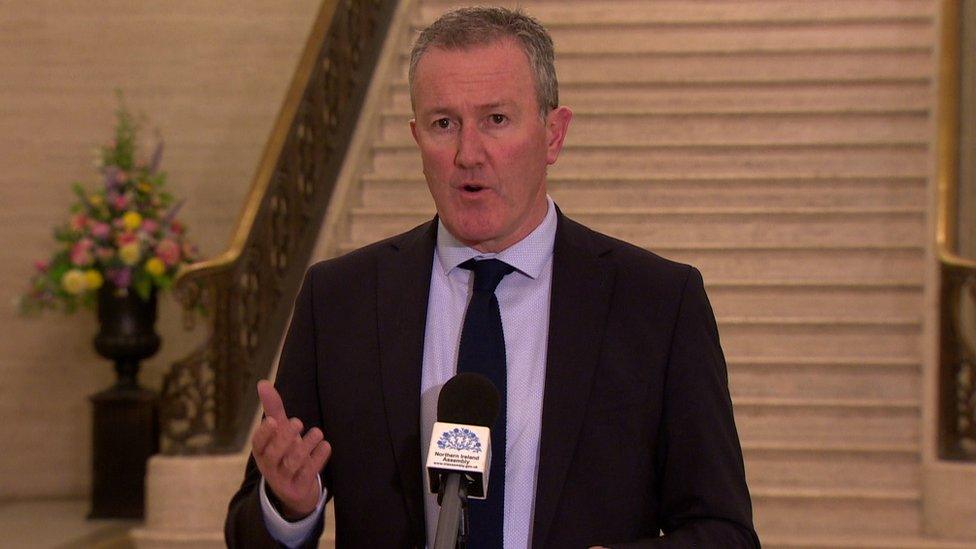Did Julian Smith pull a fast one?
- Published
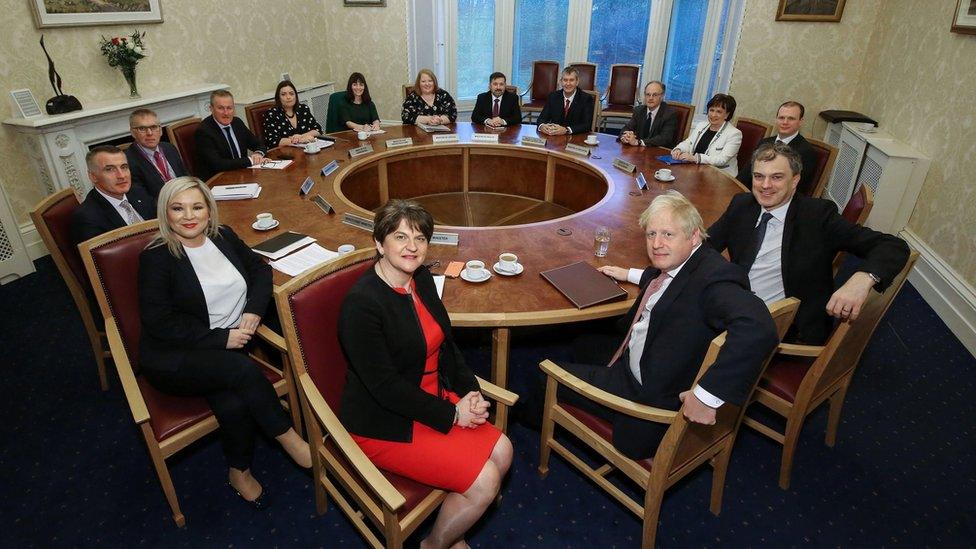
Exasperated health workers and disgruntled voters brought twin pressures on the talks
"Who are you? Rip Van Winkle?"
That was how the late Ian Paisley once put me down during a DUP news conference, when he thought my question showed me to be out of touch with the latest developments.
At the time I thought the DUP leader was being rather harsh. But at the start of this week, I really did feel like a latter-day Rip Van Winkle, as I returned to Stormont to find it bristling with life.
Last week I had to travel to England for a family commitment. Having been away when the New Decade, New Approach deal was sealed made the impact of the ghost assembly's sudden resurrection seem all the more striking.
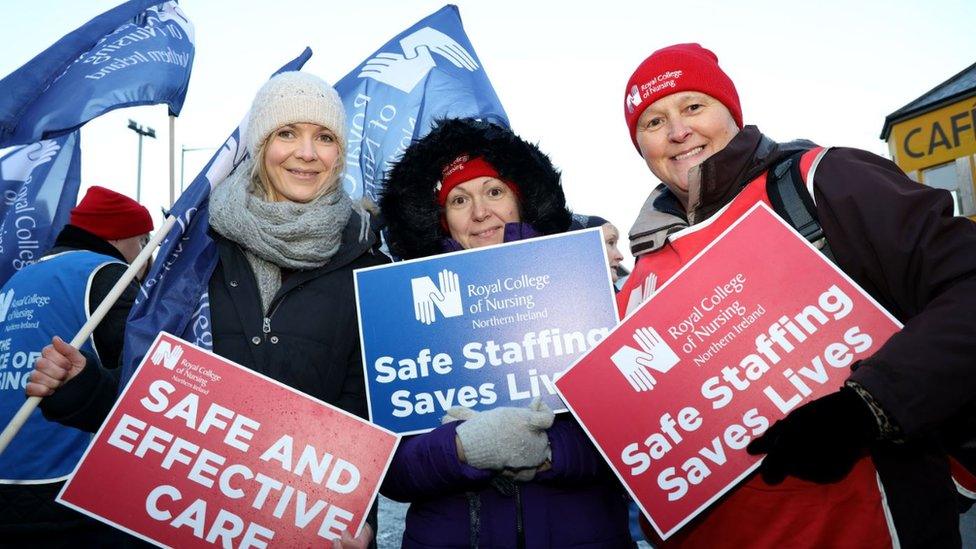
The nursing strike put pressure on politicians to restore the executive
Not for the first time, something which once seemed inconceivable now appeared perfectly logical, given the twin pressures brought to bear on our politicians from exasperated health workers and disgruntled voters.
The legal architecture for dealing with contentious issues like the Irish language seems awfully similar to that contained in the failed February 2018 draft deal.
But it's not hard to understand why the new context of a growing centre ground and ever more frequent health strikes made it hard for the two big parties to decline Julian Smith and Simon Coveney's invitation to resume their ministerial offices.
Then, despite some misgivings, the other three parties decided it was better to be inside the executive tent, rather than forming an opposition on the outside.
Cars and camera clicks
The reward came not just with the acquisition of ministerial Skodas (or in Nichola Mallon's case, a Nissan Leaf), but more importantly the swift progress in resolving the strike by nurses and other health workers.
However, no sooner had the cameras clicked on Boris Johnson and Leo Varadkar's Stormont photo opportunities, than doubts over the financial underpinning of the deal began to emerge.
In contrast to the 2007 restoration of devolution, when there was a detailed negotiation on a financial package before the formal transfer of power, this time the politicians took the UK and Irish governments on trust.
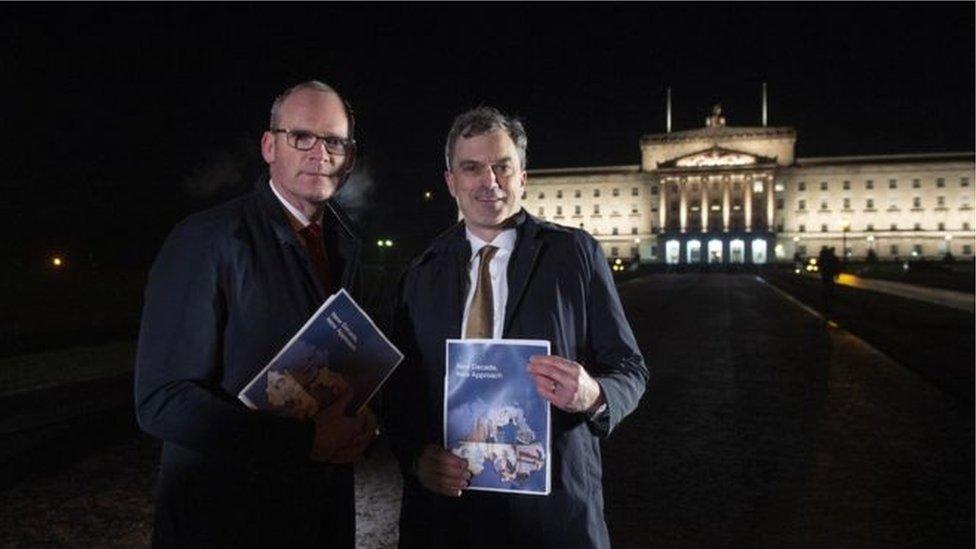
New Decade, New Approach was presented by the two governments on 9 January
Did Julian Smith pull a fast one? Or is there a genuine disagreement about how much the commitments contained in "New Decade, New Approach" will cost?
Either way, the row over cash has curtailed the new executive's honeymoon period more quickly than anyone could have reliably predicted.
Cash row
Finance Minister Conor Murphy accuses the UK government of bad faith. The Northern Ireland Secretary Julian Smith tells Mr Murphy and the other new ministers to just get on with it.
Logically all the local parties should be backing Mr Murphy, but old habits die hard with unionists Sammy Wilson, Paul Frew and Doug Beattie all more inclined to criticise the Sinn Fein Finance Minister than the Conservative Secretary of State.
So maybe not everything has changed so utterly as I thought. Although, in my Rip Van Winkle mode, I shall resist taking any power naps in my Stormont basement office for fear of what might happen by the time I wake up.
- Published15 January 2020
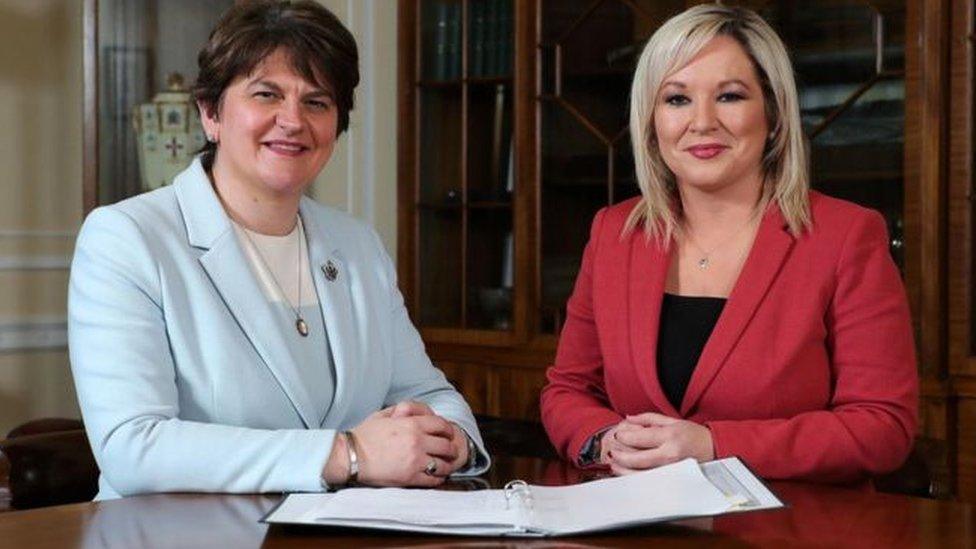
- Published16 January 2020
